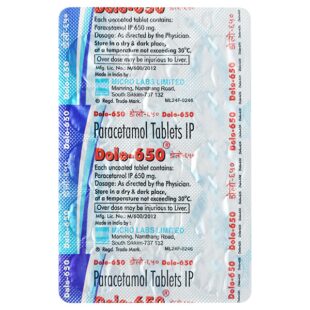- Your cart is empty
- Continue Shopping

Unicristin 1mg Injection
Uses of Unicristin 1mg Injection
Unicristine 1mg Injection used in the treatment of:
- Cancers of blood, head, neck, breast, kidney, bone, or lung
- Idiopathic thrombocytopenic purpura (ITP)
- Multiple myeloma
- Rhabdomyosarcoma
- Thyroid cancer
- Neuroblastoma
Product Description
Introduction to Unicristin 1mg Injection
Unicristine 1mg Injection is a chemotherapy medication containing the active constituent Vincristine sulphate. This medication belongs to a class of drugs called vinca alkaloids, which inhibit the growth of cancer cells. It treats blood, head, breast, neck, kidney, bone, or lung cancers. It is used in treating rhabdomyosarcoma (cancer that affects muscle tissue) and neuroblastoma (cancer that develops from immature nerve cells). It may also be used to treat multiple myeloma (cancer of plasma cells), thyroid cancer, and a blood disorder known as idiopathic thrombocytopenic purpura (ITP). Cancer is a disorder in which cells multiply in an uncontrolled and abnormal manner.
This chemotherapy medicine should not be used if you have an untreated infection or Charcot-Marie-Tooth syndrome (a disorder that causes weakness in the leg muscles). Talk to your physician if you have breathing problems, mental health illness, liver disorders, low blood cell count, or nervous disorders, or if you are having radiotherapy before taking Unicristine 1mg Injection. Like all chemotherapy drugs, it can cause side effects, such as nausea, vomiting, constipation, hair loss, and fatigue. Patients should discuss the potential benefits and risks of treatment with their doctor.
Therapeutic Effects of Unicristin 1mg Injection
The therapeutic effect of Unicristine 1mg Injection is to inhibit the growth and spread of cancer cells. It disrupts the formation and function of microtubules, which are structures inside cells that help with cell division and movement. By interfering with microtubule function, this medication can prevent cancer cells from dividing and multiplying and can also cause them to die.
Interaction of Unicristin 1mg Injection with other drugs
Inform your healthcare provider about all the medicines you take, including prescription medications, over-the-counter medications, nutritional or vitamin supplements, and herbal products. Certain medications may interact with Unicristine 1mg Injection Injection and reduce effectiveness by causing undesirable side effects.
More Information about Unicristin 1mg Injection
- Unicristine 1mg Injection should be stored in a refrigerator between 2°C to 8°C.
- Protected from light.
- Keep it in its original packaging until it is ready to be used.
- Keep reach out of the reach of children and pets.
- Should be disposed of properly.
How to consume Unicristin 1mg Injection
Unicristine 1mg Injection is usually administered intravenous injection (IV) by a healthcare professional in a hospital or clinical setting. It should not be taken orally or applied topically to the skin. If you miss a dose, then do not double the dose to make up for the missed one.
Safety Advices for Unicristin 1mg Injection
Pregnancy
Unicristine 1mg Injection is unsafe during pregnancy as it can cause fetal harm. It is s recommended to avoid this medication during pregnancy.
Breast Feeding
You need to talk to your doctor if you are breastfeeding before taking Unicristine 1mg Injection. It may cause harm to the baby.
Lungs
Unicristine 1mg Injection is used to treat lung cancer, but like all chemotherapy drugs, it can cause several side effects, including those that affect the lungs. In rare cases, it can cause pulmonary toxicity, which is damage to the lungs that can lead to breathing difficulties, coughing, and other respiratory symptoms. So it is better to consult a doctor if you have any concerns or pre-existing lung disease.
Liver
Unicristine 1mg Injection is primarily metabolized in the liver, so inform your healthcare provider if you have any liver problems or diseases. In some cases, it may cause liver toxicity, leading to elevated liver enzymes or other liver problems.
Alcohol
It is recommended to avoid consuming alcohol while taking Unicristine 1mg Injection, as alcohol can increase the risk of certain side effects associated with the medication, such as stomach ulcers or gastrointestinal bleeding.
Driving
Patients receiving Unicristine 1mg Injection should be advised to avoid driving or operating machinery if they experience side effects such as fatigue, dizziness, or blurred vision, impairing a patient’s ability to drive or operate machinery safely.
Side Effects of Unicristin 1mg Injection
Like all medications, Unicristine 1mg Injection Injection can cause side effects, although not everyone who takes it will experience them.
Serious:
- Severe allergic reactions
- Pulmonary toxicity (lung damage)
- Liver toxicity
- Neurotoxicity (damage to the nervous system)
- Tumor lysis syndrome (life-threatening complication in which cancer cells release their contents into the bloodstream)
Common:
- Nausea and vomiting
- Constipation
- Loss of appetite
- Hair loss
- Fatigue
- Muscle weakness
- Numbness or tingling in the hands and feet (peripheral neuropathy)
- Increased risk of infection
- Easy bruising or bleeding
- Mouth sores
- Changes in mood or behavior
- Difficulty sleeping





Reviews
There are no reviews yet.